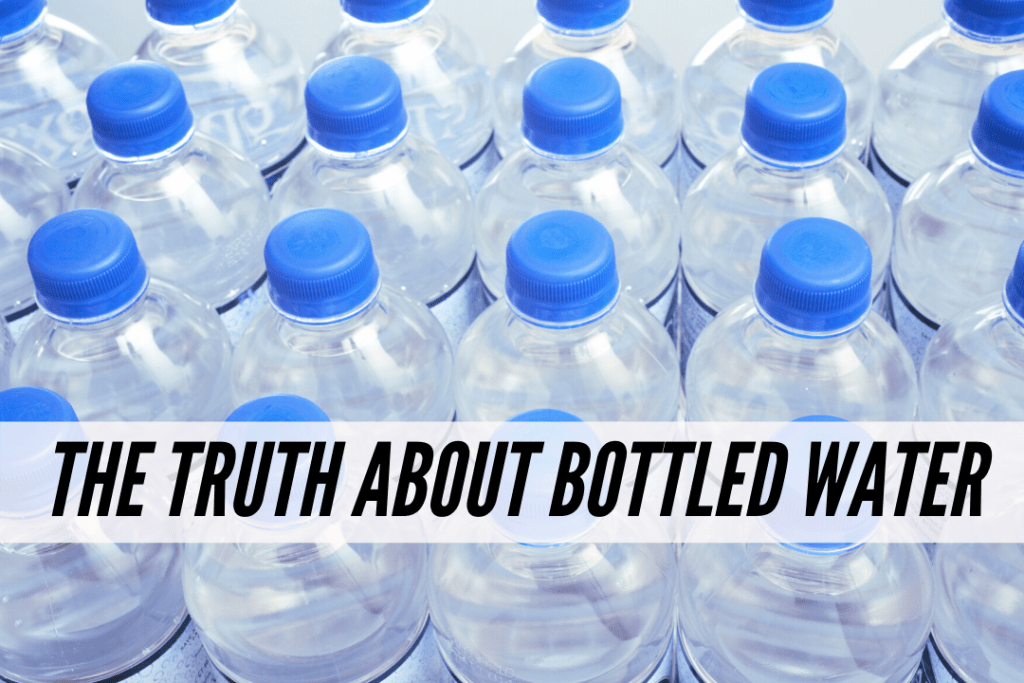
I’ll admit it: Not too long ago, I was a heavy bottled water user. I would buy cases of pre-packaged water because I thought they were convenient: I’d just grab a bottle out of the fridge before leaving to work out or run errands and be on my way.
However, after one of my classmates gave a speech on the negative effects of bottled water, I began to rethink my habit. I soon went out and bought a reusable bottle, and since then have dramatically cut down on my usage of bottled water. And I have learned that reusable water bottles are no less convenient than their disposable counterparts – and a lot better for our planet.
In honor of Earth Day, I wanted to share my new-found knowledge on the negative effects of bottled water with the rest of you in hopes of making a difference for our beloved planet. I hope you find this post informative and inspirational!
Table of Contents
Bottled Water & Waste
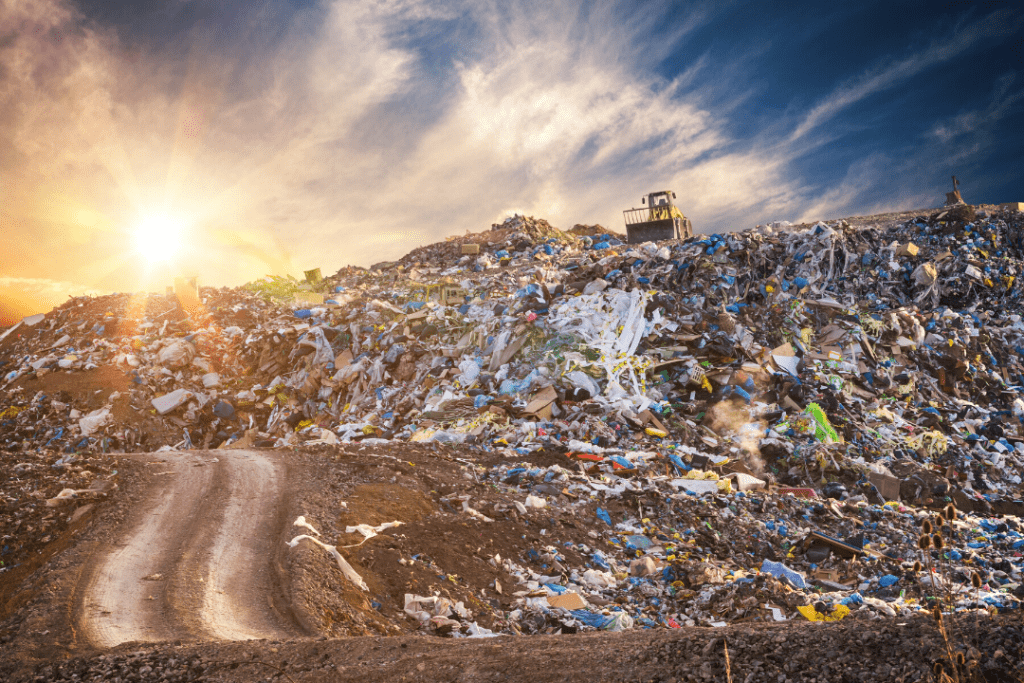
- Every square mile of ocean contains 46,000 pieces of floating plastic.
- A plastic bottle can take hundreds of years to break down – and even then, its particles don’t just disappear.
- Over time, plastic breaks down into smaller pieces that can contaminate our soil, animals, and waterways.
- Animals often mistake these plastic pieces for food. Once the plastic gets into their systems, these pieces can poison the animal and often lead to its death.
- 26 billion water bottles are thrown away each year.
- Only 1/5 of these are recycled.
Plastic is the world’s greatest source of pollution and water bottles make up the largest portion of the plastic in landfills today. As you may know, plastic does not degrade quickly, and may be harming our soil and animals. Plastic particles have even been linked to human health issues, as when we eat fish, for example, we often consume everything the fish has been exposed to – including chemicals leached from plastics. Even though the world has steadily gained more knowledge about recycling, today, most bottles still end up in landfills.
Together, these reasons already provide good incentives to reduce your use of bottled water. But read on – there’s more.
Bottled Water & Pollution
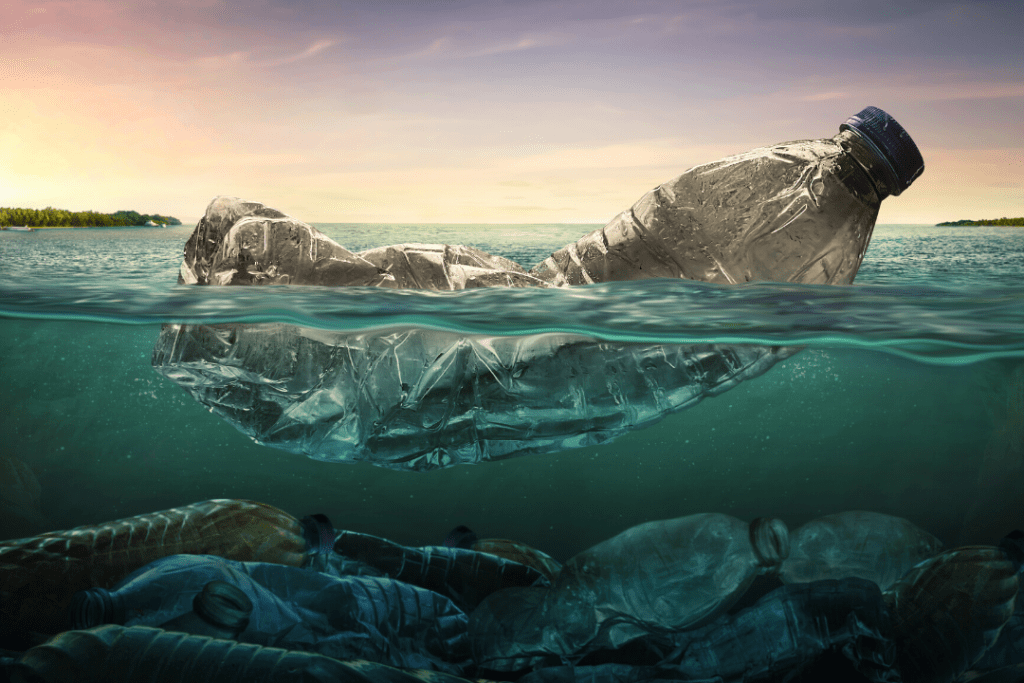
- To make 1 bottle of water, 3 times that amount of water is wasted in production.
- 17 million barrels of oil per year are used in production of bottled water. For reference, this amount of oil could fuel 1 million cars for a year.
- Water bottles not only need to be produced, but also shipped around the world. Transporting these bottles by means of train, truck, ship, and plane additionally add to air pollution.
Producing bottled water is undeniably detrimental to the environment. Not only do the factories that produce these plastic bottles emit tons of carbon emissions into the atmosphere, but once the bottles are filled, transporting them releases even more carbon dioxide into the air.
Bottled Water & Cleanliness
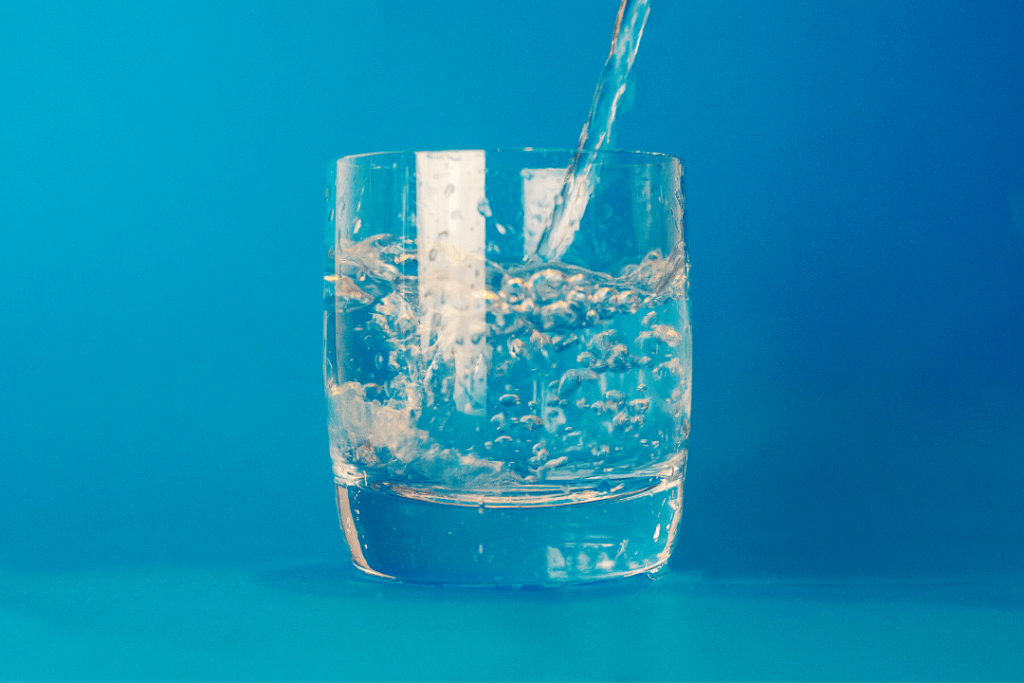
- Municipal water plants have stricter regulations on the quality of the water than bottled water companies.
- The Natural Resource Defense Counsel did a 4-year review on bottled water and found that: 22% of the tested brands contained chemical contaminants at levels above those mandated by the state, and 40% of the tested brands were taken originally from tap water.
Many times, bottled water companies promote their products by telling consumers that bottled water is “purer” and “safer” than tap water. However the regulations surrounding the distribution of tap water are much stricter than the regulations on bottled water companies. Additionally, multiple independent research groups have found that many bottled waters originally came from the tap, and many other brands contain higher levels of contaminants than are permitted at municipal levels.
The True Cost of Bottled Water
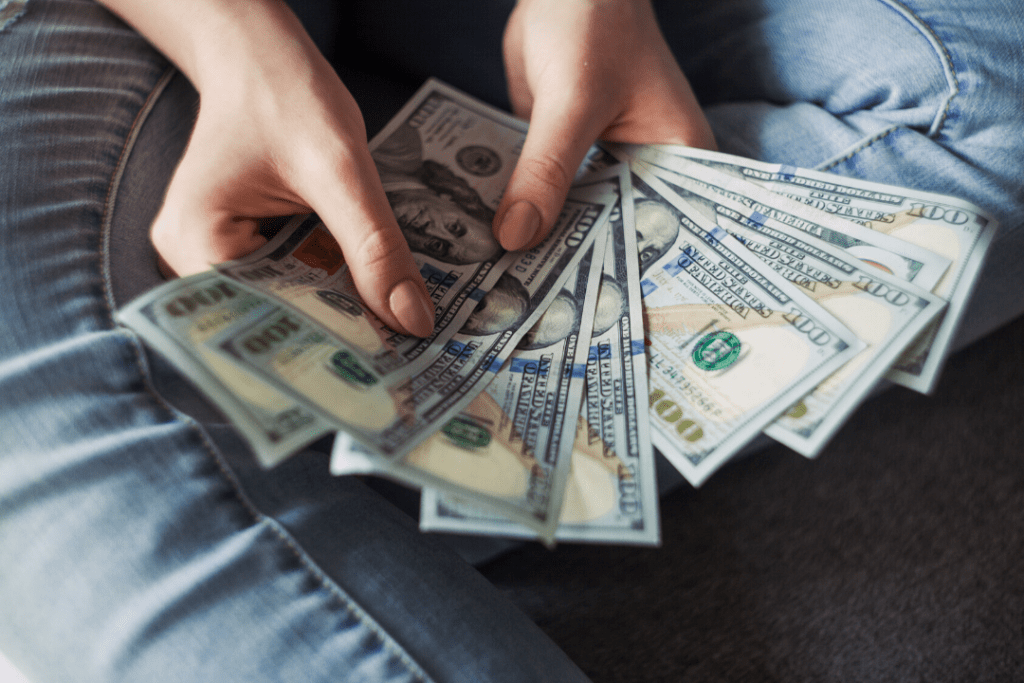
- On average, bottled water costs about $10 per gallon.
- Tap water costs less than $0.01 per gallon.
- Do the math: Bottled water is, on average, 1,000 times more expensive than tap water!
As you can see, bottled water is way more expensive than tap water, and switching from bottled water to tap will save you money. Even if you don’t care about the environmental effects, it’s hard to ignore the potential cost savings here.
What You Can Do to Help
Now that you know about the known and potential hazards of bottled water, you’re probably wondering what you can do to protect our environment and reap the cost savings. Here are a few simple tasks to help you save money, reduce your carbon footprint, reduce waste in our oceans and soil, and help prevent animals from ingesting harmful plastics:
- If you are concerned about the cleanliness of your tap water, buy a filter for your sink or buy a pitcher that filters the water for you.
- Instead of using disposable water bottles, buy a reusable water bottle. There are many types out there such as stainless steel, aluminum, BPA-free plastic, and glass. Find one that best fits your needs.
- If and when you do have to use disposable water bottles, make sure to recycle them.
- Finally, share this new knowledge with others around you and encourage them to make these simple changes with you. After all, it’s easier to make a change when your friends are supporting you!
Bonus: Cute Reusable Water Bottles
Finally, to help you make the switch, here are a few of my favorite reusable water bottles:
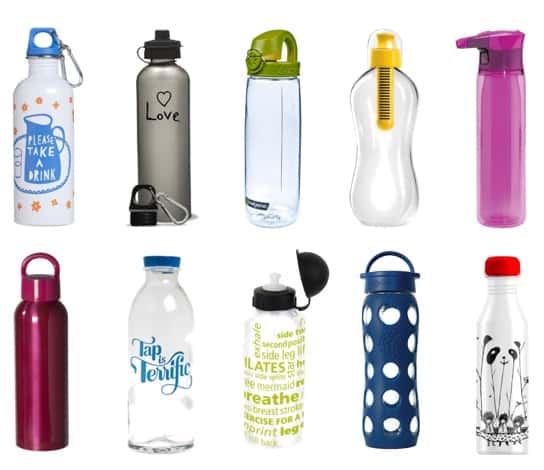
Product Information: Top Row: 1, 2, 3, 4, 5 Bottom Row: 6, 7, 8, 9, 10
Not only are these bottles adorable, but they are also eco-friendly! Here, I featured stainless steel (1,2,6,10), aluminum (8), BPA-free plastic (3,4,5), and even glass (7,9) reusable water bottles.
Which one to choose? There are tons of options out there and I know when I bought mine it was somewhat overwhelming. When making this purchase, think about what features will best fit your needs. How much water do you want your bottle to store? Do you want it to have a filtration system built in? What activities will you use this water bottle for? Do you want a spout to drink from? Considering each of these factors will help you decide which reusable water bottle is best for you.
Also, even though a $10 or $20 water bottle may seem somewhat expensive right now, remember that in the long run you will be saving a tremendous amount of money by eliminating your bottled water habit.
What do you think?
Do you drink bottled water? How often? Do you think this article was informative? Did you know about the harmful effects of disposable water bottles before reading this? Do you already use a reusable water bottle? Are you going to go buy one now? Please be sure to leave a comment and let me know your thoughts!

I bough a camebak water bottle…probably one of the purchases i have EVER made. i drink a lot more water than i used to because i love biting on the nozzle, it’s BPA free (at least the one I have is) and i don’t waste any plastic bottles 🙂
Great article about bottled water. I am in love with my water bottle and carry it with me everywhere.
Tapped is a really great documentary to learn about the detrimental effects of bottled water.
Also the bobble is sold at target for those of us who don’t have an american appearal.
In my country (Costa Rica) bottled water is something of an oddity, because tap water is so clean 🙂 and delicious, depending on where you live. So you buy water bottles only when you’re on the go and there is absolutely no tap water available. And then you keep the bottle and refill it forever. I took a water bottle like 3 weeks ago and it became my drink bottle for my lunch and work
You should have mentioned the Camelbak waterbottle! It’s BPA free and you drink 24% more water with it! 🙂
I am rather lucky, I live in Denver and we have the best tasting tap water ever so a reusable water bottle is a no brainer. It kills me when I go back home to Illinois and people have never heard of a reusable water bottle, “you mean like a cantene sweetheart?” Oh and if you get a chance, watch the documentary F.L.O.W. For Love of Water. you will never buy a bottle of water again.
i really like this foldable water bottle ( http://vapur.us/ ) because when im done drinking i can fold it up and fit it easily into my bag. it is nice that it doesnt take up valuable space in my purse that is already crammed with other things.
I go to Penn, and I know two students here invented in 2005 a water bottle with a built in filter–it’s a HYDROS bottle and it works great. I prefer filtered water and I adore my Penn HYDROS bottle. Part of the revenues go towards building water projects in Africa.
I know another one is the BOBBLE bottle which is a similar concept. For those who like their water filtered this is great because you can really get water anyway and guarantee its filtered. Just my take.
This sounds like a sales pitch, swear it’s not lol
Thank you all for the wonderful feedback!
I am especially interested in some of the videos you guys recommended. I will definitely need to check them out!